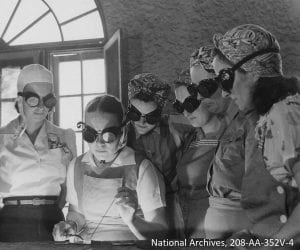Every year during the last week of September, the American Library Association celebrates Banned Books Week, encouraging people to read works of literature that have been challenged throughout history by censors who considered them profane, inappropriate, or radical. The ALA defines a “challenge” as an attempt to remove a book from libraries or school curricula; a “ban” is when that book is successfully removed, preventing individuals in that community from easily accessing and reading it.
Lists of most-challenged books often read like lists of books that have shaped history – from Harper Lee’s Pulitzer-prize winning To Kill a Mockingbird, considered racist by some critics, to The Words of Cesar Chavez, which was banned in Arizona public schools after legislators passed a controversial bill that removed a highly successful Mexican-American studies curriculum, alleging it was anti-white.
However, the number one reason that books are banned remains “sexually explicit content.” This reason is used not only against works of fiction, but frequently to justify challenges of nonfiction texts as well, such as It’s Perfectly Normal. The book, first published in 1994, educates children about puberty and sex, and is checked for medical accuracy by pediatricians. The most recent edition includes up-to-date information about HIV/AIDS, sexting, and transgender youth. Those who challenge the book want to place it in a special part of the library, so children wouldn’t be able to access it without an adult.
However, the book’s author, Robie Harris, says that this defeats its purpose. “No child’s going to go up to a librarian and say, ‘You know, I’m going through puberty, I’m having these changes, I seem to have these pubic hairs, and could you recommend something to me?’ ” she says. “If a book is in a special section of the library, maybe the kids who need it the most are not going to get it.”
The stakes for “the kids who need it the most” are high when we consider that the United States has the highest rate of teen pregnancy among developed nations. A teenage girl in America is more than twice as likely to become pregnant as a girl in Canada, and 4 times as likely as her counterpart in Germany or Norway. Additionally, more than half of states still do not require sex education in public schools, and many programs must teach abstinence without providing information about contraception. In light of this data, it seems more important than ever that young people have access to books that will help them make healthy, informed decisions about their bodies.




